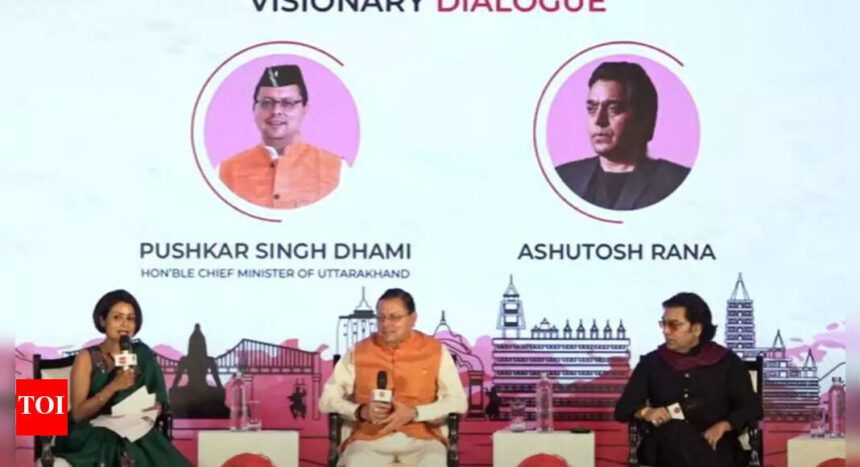NEW DELHI: The TOI Dialogues – Uttarakhand Edition held on Tuesday featured Chief Minister Pushkar Singh Dhami as a key speaker. In his address, Dhami remarked, “Since 2014, under the leadership of Prime Minister Modi, India has entered a historic phase of renewed pride. Work is being carried out in a systematic and organized manner. He mentioned that this decade of the 21st century will be Uttarakhand’s decade, and our government is actively working in this direction.”
In a dialogue with actor Ashutosh Rana, who hails from Uttarakhand, the Chief Minister addressed the pressing issue of climate change. Dhami noted, “This is not just our challenge. We need to work with a broad vision. The challenges arise in areas where construction work has not been done. We are focused on ensuring that prior information is available and that response times are minimized.”
Actor Ashutosh Rana emphasized the need for transformation in Uttarakhand, arguing, “The damage caused by distortion is greater than that caused by natural forces. Nature is currently resetting itself, and there is a need to guide Uttarakhand towards this transformation.”
Opening the dialogue, Prasad Sanyal, Business Head of the Times of India, highlighted the dual nature of Uttarakhand as a region rich in tradition yet poised for future advancements. “This platform was not created solely to celebrate achievements; it is designed to question, reflect, and most importantly, reimagine. At the Times of India, we believe the conversation must extend beyond this venue into action, vision, and lasting impact.”
The TOI Dialogues – Uttarakhand Chapter serves as a platform for the convergence of ideas, culture, and innovation. Set in the revered land of Devbhoomi, it gathers thought leaders, policymakers, creators, and changemakers to reflect on the evolving identity of Uttarakhand.
Discussions at the TOI Dialogues cover a range of topics, including the region’s growth in cinema, its spiritual heritage, resilience narratives, and sustainability debates. The event aims to illustrate how traditional values and modern aspirations can coexist, shaping a balanced and progressive future for the state.










